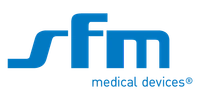The pharmaceutical landscape continues to evolve rapidly. Market demands are shifting; supply chain stability remains under pressure, and the industry is placing greater emphasis on adaptable formulation strategies. Technologies such as lipid nanoparticles, targeted delivery systems, bio adhesive polymers and sustained-release capsules play a key role in achieving both therapeutic effectiveness and market readiness. Early progress in drug delivery was largely defined by advancements in encapsulation methods, excipient science and drug stability protocols.
How Drug Delivery is Transforming Therapeutics
The field of drug formulation continues to expand, driven by scientific progress and technological innovation. Current pharmaceutical advances focus on streamlined, scalable processes that shorten development timelines, support faster regulatory approval and help bring research into clinical application more efficiently. Technologies such as lipid-based nanoparticles, controlled-release implants and open-platform formulation methods are gaining traction for their versatility, reliability and ability to meet strict regulatory standards.
At the same time, demand is rising for more sophisticated and patient-focused delivery systems. Key areas of interest include personalized medicine, biologically responsive formulations and precision-targeted therapies. Formulation scientists and healthcare professionals are working closely to improve therapeutic outcomes and support patient adherence. Digital simulation tools and predictive modeling now play a vital role in formulation development, enabling thorough virtual testing before physical prototypes and clinical trials begin.
Continuation of Drug Delivery Innovation
This new phase of drug delivery innovation is defined by advanced applications and significant therapeutic potential. Nano-carrier systems now support rapid adjustments to treatment regimens, allowing responses to individual patient needs in near real time. Healthcare professionals are working closely with formulation developers, using AI-driven modeling tools for predictive analytics and personalized therapy planning. As these developments continue, risk management remains a priority, particularly in ensuring regulatory compliance and maintaining quality assurance.
Regulatory compliance and strict quality assurance remain central to strategic planning in the pharmaceutical industry. While novel drug delivery systems and innovative therapeutic approaches generate momentum, key challenges persist. Industry leaders must address concerns related to bioequivalence, manufacturing scale-up and regulatory alignment across global markets. These responsibilities are essential for ensuring the safe, effective and timely delivery of modern therapies.























